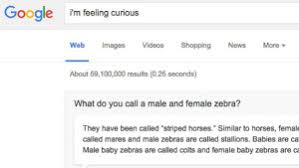I’m Feeling Curious on Google

Do you know how to find the answers to questions on Google? This trick is one of the oldest in the Google world, and it was introduced four years ago, back in September 2015. The trick can be useful for archaeologists and other people who are interested in archaeology. This trick is based on the idea that curiosity creates closeness and enchantment. It is also useful for archaeologists who are researching ancient ruins.
Google’s i’m feeling curious trick
Google’s ‘I’m Feeling Curious‘ feature is an innovative new tool that displays random facts about whatever you type in it. These facts are sourced from various sites, including Wikipedia, to provide the user with a little bit of trivia. While its origins are unknown, the gimmick is likely the work of a few enthusiastic Google employees. Although the trick has only been around since late 2015, its popularity has skyrocketed.
Google has introduced this fun trick in September 2015. This new feature lets you search for random facts from the Internet. Google will display a box with a fact containing a link to the source of the fact, and an option to ask another question. You’ll then be able to learn more facts about the topic.
Google has been using this trick since at least September 2015. Its popularity increased tremendously in September 2015, when people discovered it for the first time. The creators of this trick are unknown, but the trick remains one of Google’s most popular tricks and is still receiving millions of hits each year.
Effects of curiosity on enchantment
The effects of curiosity on enchantment are triggered whenever an enchanted creature deals damage to an opponent. This can happen three times in a four-player FFA game. Some effects don’t care about whether a creature deals damage to an opponent, while others care more about recognizing the difference between draws and losses.
Curiosity is a general, natural trait that can be found in individuals of all ages. It is easily observed in various animal species, as well. Early definitions of curiosity cite a motivated desire to seek knowledge or understanding. Curious individuals tend to be more tolerant of discomfort and are more likely to seek out novel experiences.
Enchanted brands are designed to entertain and challenge consumers, thereby stimulating their creativity and stimulating new thinking. They inspire personal creative decision making and connect the purchasing of a product to achieving a dream.
Effects of curiosity on closeness
Curiosity has an important effect on intimacy and is positively associated with the amount of closeness a person experiences. Researchers have demonstrated that curiosity can increase the amount of closeness a person experiences with a partner. Using a state-based version of the CEI, participants rated their own feelings of curiosity on a seven-point Likert scale. They found that high levels of curiosity were positively associated with greater levels of closeness while low levels of curiosity had no effect.
Curiosity is a critical factor in creating and maintaining closeness in romantic relationships. People who are extremely curious report feeling closer to their partners in real-life social situations. This includes situations that involve small-talk and greater effort. However, the effects of curiosity on closeness are not as well-defined as those observed with non-curious individuals.
Curiosity has been linked to attributions and social motives. More curious individuals report that their social behavior is motivated by exploration, mood enhancement, and their strengths, while less curious people report that their social behavior is motivated by other reasons. This suggests that curiosity may not be a mediator of closeness, but it does affect the quality of closeness in intimate relationships.
Effects of curiosity on gaining knowledge of
In the present study, we examine how different motives for curiosity influence the way people approach knowledge. We find that people’s curiosity is different depending on whether they feel deprived of information or if they expect to acquire it. We also find that the relative importance of the deprivation and discovery motives depend on the target features and information gap. Curiosity is more pleasant when it anticipates positive information, whereas it is more unpleasant when people anticipate negative information.
Curiosity is innate in humans, as well as in other evolved species like dolphins and primates. Children, regardless of their race, have a phenomenal amount of curiosity. The brain region called the hippocampus is involved in forming new memories, and curiosity motivated learning increases activity in the region. This activity is important for the formation of new memories.
This effect is particularly significant for individuals who are curious about something. They may be more likely to recall a trivial answer if they’re closer to the answer than if they’re further away. Curiosity is a powerful predictor of test accuracy.




